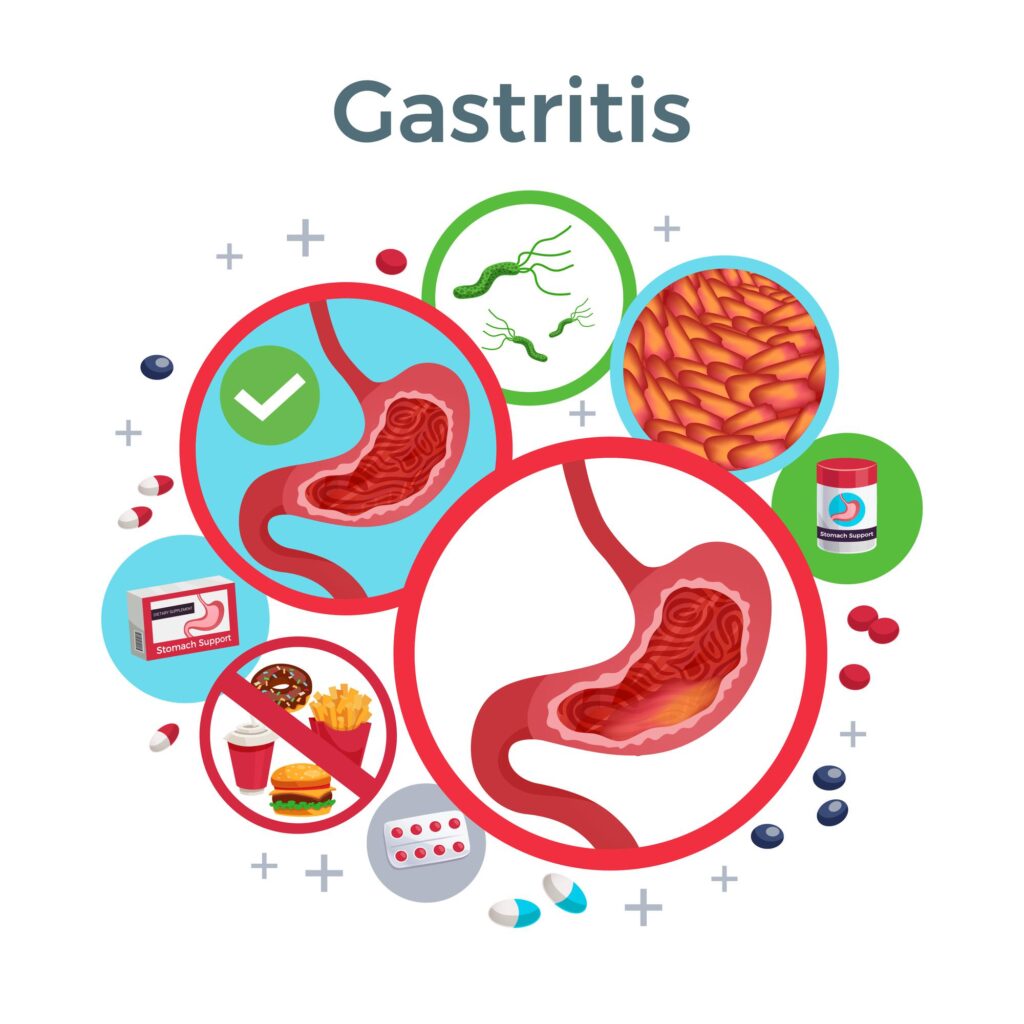If you have GERD (chronic acid reflux), the stomach acid runs back into your throat through your esophagus. As a result, acid reflux, sour indigestion, difficulty swallowing, a sense of food stuck in your throat, as well as other issues is possible.
GERD is a disorder in which acid-containing materials from the stomach seep back up into the esophagus, the tube that connects your throat to the stomach.
When food reaches your stomach, a valve at the end of the lower esophageal oesophagus fails to seal properly, causing acid reflux. Acid backflow then travels up your esophagus, through your throat, and into the mouth, leaving you with a sour taste.
The Causes of GERD
The LES opens to enable food to enter your stomach during regular digestion. The valve then closes, preventing food & acidic stomach fluids from returning to your oesophagus. Whenever the LES is weak or releases as it shouldn’t, it causes gastroesophageal reflux. This allows the stomach contents to flow up the oesophagus.
The stomach & oesophagus are referred to as “gastroesophageal.” The word “reflux” implies “to flow back” and “to return.” When the contents of your stomach return up into your oesophagus, this is known as gastroesophageal reflux.
Treatment for GERD & Home Remedies
The goal of a stomach specialist is to reduce the quantity of reflux or diminish the damage that refluxed materials cause to the esophageal lining.
To treat the symptoms, top gastroenterologists prescribe over-the-counter or prescription drugs.
- H2 blockers: If you have chronic heartburn or reflux, your doctor may prescribe drugs to limit the amount of acid in your stomach. H2 blockers, for example, help to prevent acid output in the stomach. Memantine (Tagamet), famotidine (Pepcid), & nizatidine are examples of H2 blockers.
- Antacids: These medications can assist in neutralising acid in the oesophagus and stomach, thus preventing heartburn. Nonprescription NSAIDs provide temporary or full relief for many people. In addition, some folks benefit from a combination of an antacid and a foaming agent. These molecules, according to researchers, produce a foam layer on top of the body that prevents acid reflux.
- However, lengthy use of NSAIDs can cause diarrhoea, structure and surface metabolism (a shift in how the body starts to break down & uses calcium), as well as a magnesium accumulation in the body. For patients with kidney problems, too much calcium can be dangerous. Consult your doctor if you require antacids for further than two weeks.
- PPIs (proton pump inhibitors): These medications, sometimes known as acid inhibitors, stop the production of stomach acid by blocking a protein.
Remedies for Relief
- Maintain a healthy weight: Excess weight exacerbates symptoms. As people who are overweight lose weight, they often feel better.
- Wear loose clothing: Tight clothing puts pressure on your stomach and the lower section of your oesophagus.
- Acupuncture: In one trial, acupressure treatment reduced reflux in the test group faster than PPIs, with longer-lasting benefits. Further large studies are needed to prove this, but the early results seem encouraging.
Conclusion
Although GERD can restrict your everyday activities, it is rarely fatal. You will feel much better if you know the problems and receive effective treatment from the best gastroenterologist in Thane

